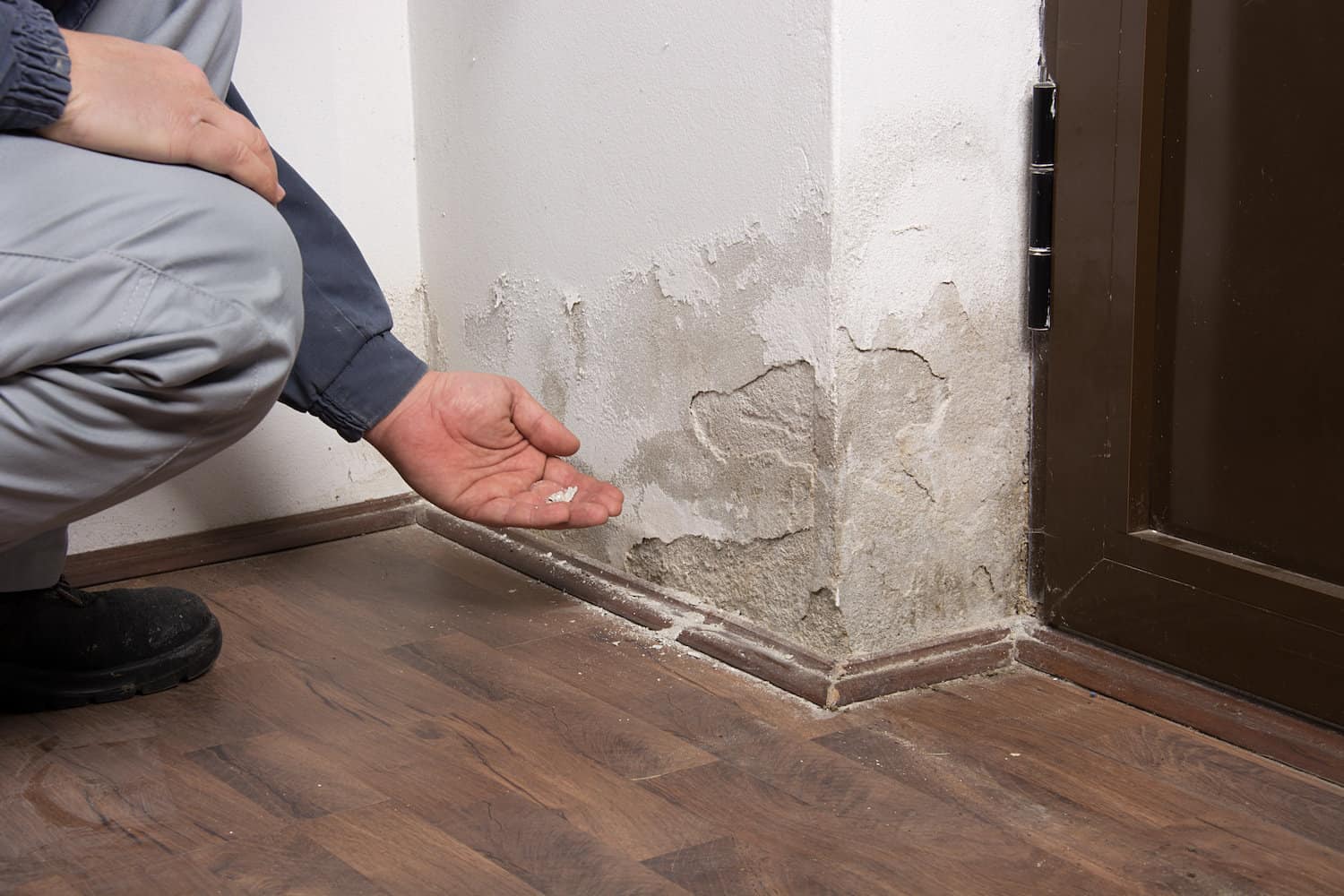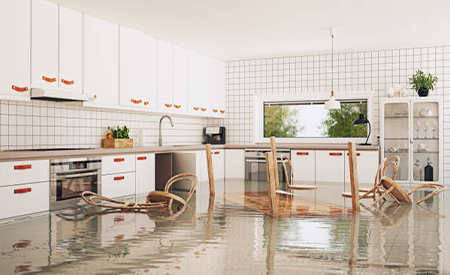Experienced Water Mitigation Company Offering Comprehensive Water Damage Solutions
The Refine of Water Damage Clean-up: Guaranteeing Your Home Is Brought Back Effectively
Water damage can be a daunting obstacle for property owners, requiring a structured and precise cleanup procedure to restore safety and security and functionality. A thorough assessment is critical to recognize the extent of the damages and identify the proper remediation steps. Following this, effective water removal techniques play a pivotal duty in minimizing further injury. Nevertheless, the subtleties of drying, sterilizing, and ultimate restoration are similarly vital and usually neglected. Understanding these stages can make a significant difference in the end result of your home's repair, triggering a closer check out what each step entails.
Evaluating the Damage
Upon uncovering water damages, the first step is to thoroughly analyze the degree of the influence. This initial analysis is essential, as it helps figure out the necessary actions for efficient clean-up and reconstruction. Begin by evaluating the affected locations, consisting of walls, ceilings, floors, and individual valuables, to recognize the source of the water breach, whether from flooding, leakages, or condensation.
Recording the damages is crucial for both insurance policy claims and intending remediation initiatives - damage restoration services. Use pictures and composed notes to record the extent of the damage, noting any damaged architectural aspects and products. Pay unique focus to locations that might not be right away visible, such as behind walls and under carpetings, as hidden dampness can cause additional complications, including mold and mildew development
Furthermore, examine the timeline of the water exposure. Ultimately, a comprehensive evaluation lays the foundation for a successful water damages clean-up process, making sure that all affected locations are resolved efficiently and extensively.
Water Extraction Strategies

Experts generally employ completely submersible pumps for larger quantities of water, which can swiftly relieve flooding in basements or other impacted locations. For smaller sized quantities, wet/dry vacuum cleaners are typically made use of to draw out residual dampness from rugs and hard surface areas. In addition, making use of portable extractors enables for targeted removal in constrained areas or areas with delicate materials.
In instances of contaminated water, such as sewer or floodwater, advanced removal methods might entail the usage of biohazard devices to make certain security and conformity with wellness regulations. High-powered removal devices are crucial in decreasing water retention in architectural products, which can lead to mold and mildew development and architectural degeneration if not dealt with immediately.
Inevitably, the effectiveness of water removal techniques plays an essential duty in the total success of the water damage cleaning procedure, laying the groundwork for subsequent reconstruction efforts.
Drying and Dehumidification
As soon as standing water has actually been efficiently removed, the next critical stage in the water damages cleaning process is drying and dehumidification. This step is crucial to prevent additional damage and mold development, which can happen within 24 to 2 days in moist environments.
To accomplish effective drying, specific tools such as industrial-grade air moving companies and dehumidifiers is utilized. Air movers circulate air across wet surfaces, boosting dissipation prices, while dehumidifiers lower moisture degrees in the air, promoting a helpful environment for drying. The mix of these tools makes sure that moisture is extracted from floorings, wall surfaces, and furnishings, allowing them to dry extensively.
It is essential to keep track of the drying out process carefully. Specialists often use moisture meters to examine the moisture material in numerous products, making certain that all influenced areas reach appropriate dry does flood insurance cover broken pipes skin levels. This careful method helps to prevent concealed dampness pockets that can bring about architectural damage or harmful mold and mildew growth.

Cleansing and Sterilizing
After the drying and dehumidification stage is total, the next crucial action in water damage cleaning is cleaning and disinfecting the impacted areas. This process is essential to avoid the development of mold, microorganisms, and other virus that prosper in damp environments.
The cleaning stage usually entails removing any debris, dust, and impurities from surface areas utilizing specialized cleansing agents. For tough surfaces, a mix of soap and water or commercial cleansing items is commonly utilized. Soft materials, such as upholstery and carpets, might need more substantial cleansing techniques, consisting of heavy steam cleansing or deep extraction strategies, to guarantee thorough sanitation.

Sterilizing adheres to cleansing, utilizing EPA-approved anti-bacterials to eliminate damaging bacteria. This action is essential, specifically in areas that might have come into contact with floodwaters or sewer, as these resources can posture significant health threats.
Furthermore, it is necessary to resolve any type of remaining smells, which might require using smell neutralizers or innovative strategies like ozone therapy. Correct cleaning and sterilizing not only recover the security and health of your home yet additionally lay the foundation for effective restoration and fixings in succeeding phases of the water damages clean-up process.
Remediation and Repairs

When the evaluation is complete, remediation efforts can begin. This commonly includes fixing or changing broken products, making certain that all job follows neighborhood building regulations and criteria. As an example, if drywall has been endangered, it will require to be eliminated and replaced with new product. In addition, flooring might call for comparable interest, depending on the degree of water direct exposure.
It is vital to involve seasoned page remediation professionals throughout this process, as they have the knowledge to handle intricate repair work properly. Additionally, they can aid mitigate possible future issues, such as mold and mildew growth or structural instability, therefore making sure a safe and habitable living setting. Ultimately, efficient reconstruction and repairs bring back the home's integrity and boost its overall value.
Final Thought
Finally, the procedure of water damages cleanup is vital for recovering a home to its pre-damage condition. Each phase, from evaluating the damage to applying efficient water removal strategies, complied with by complete drying out, sanitizing, and required repair services, plays an essential role in making certain safety and compliance with building criteria. Reliable implementation of these steps not just mitigates immediate damage but likewise boosts the long-lasting stability and worth of the property.
Water damages can be an overwhelming obstacle for image source house owners, requiring a precise and structured clean-up process to restore safety and security and performance. Ultimately, a comprehensive analysis lays the groundwork for a successful water damages cleanup procedure, making certain that all impacted areas are resolved successfully and thoroughly.
Reliable water removal methods are important in minimizing damage and protecting against additional problems following a water breach event.In final thought, the process of water damages clean-up is critical for bring back a home to its pre-damage problem. Each phase, from analyzing the damage to implementing reliable water extraction methods, adhered to by extensive drying out, sanitizing, and essential repair work, plays an important duty in ensuring security and conformity with structure standards.